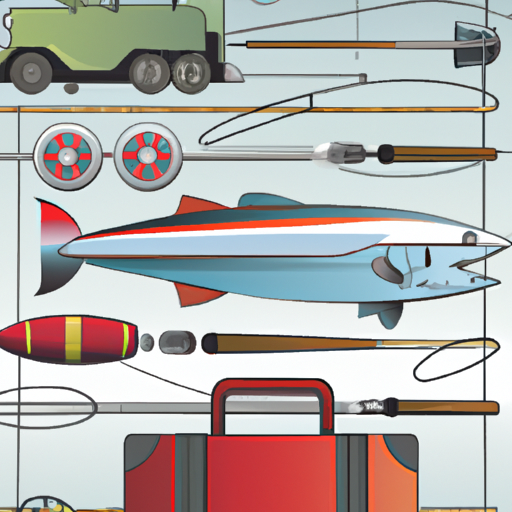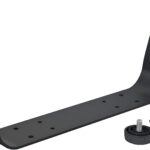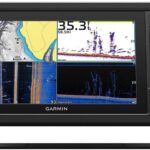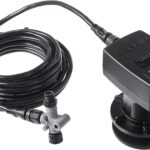Getting around with your fishing gear can be quite the task, especially when you’re using modes of transport such as planes, trains, and automobiles. Tricky as it may seem, this article: “A Guide To Traveling With Fishing Gear: Planes, Trains, And Automobiles” is designed to make that easier for you. Filled with practical tips and insightful advice, it’s your foolproof manual to ensure your beloved fishing equipment reaches your destination intact and ready for fishing action. From packaging guidelines to regulations specific to each mode of travel, this guide has you covered, making your love for fishing align with your love for travel seamlessly. So get ready, because this journey is about to get reeled in!
Understanding the Basics of Traveling with Fishing Gear
As a fishing enthusiast, you know that carrying your equipment with you can sometimes be a hassle. Especially if you’re traveling long distances. However, with a bit of knowledge and preparation, you can make this process a breeze.
The importance of proper packing
Packing your fishing gear correctly is vital for two main reasons: protecting your equipment from damage and ensuring a smooth traveling experience. Your fishing gear, like rods, reels, and lures, are prone to damage if not packed properly. Additionally, incorrect packaging could cause issues at the airport or the border.
Knowing the different types of fishing gear
Familiarizing yourself with the different pieces of fishing gear can make it easier for you to pack. Different types of fishing rods, reels, hooks, lines, lures, baits, sinks, floats, and gaffs all have unique needs when it comes to packing and carrying.
General rules for traveling with fishing gear
Generally, airlines and other transport services allow you to carry fishing gear. However, there are often restrictions related to size and weight that you should be mindful of. Also, sharp objects such as hooks are usually required to be securely stored and checked in.
Planning Your Fishing Trip
The next step in your journey involves careful planning. From choosing your destination to knowing the laws and regulations, every detail counts.
Choosing your destination
Choosing your destination depends on a variety of factors such as the type of fish you want to catch, the season, and your personal preferences. You might also consider factors such as the fishing method (saltwater, freshwater, fly-fishing, etc.).
Knowing the best time of year to go
The time of the year has a significant impact on your fishing trip. Various fish species are more active during certain seasons, so plan your trip accordingly to get the most out of your experience.
Preparing your travel itinerary
Your travel itinerary should include all the necessary details of your trip, such as your flight information, accommodation, fishing spots, and any side trips you plan to make.
Researching local fishing laws and regulations
Before heading out, make sure to research the local fishing laws and regulations. This may include obtaining fishing licenses or permits, understanding size and weight restrictions on catches, and knowing where you are allowed to fish. Not familiarizing yourself with these laws could result in hefty fines or other penalties.
Traveling by Plane with Fishing Gear
Traveling by plane with fishing gear can be tricky, but with the right knowledge, it doesn’t have to be a difficult process.
Checking fishing gear as luggage
Most airlines require that fishing gear be checked in as luggage due to their size and sharp elements. Check with your airline to know their specific rules regarding fishing gear.
Airline policies for fishing gear
Each airline has its policy on fishing gear. Some may allow you to carry your gear as part of your checked baggage allowance, while others might require it to be shipped separately. Always double check before you fly.
Packing tips for air travel
When packing for air travel, secure all sharp objects like hooks and ensure that fragile items like rods and reels are well protected. Using a fishing rod travel tube can provide an extra layer of protection for your rods.
Airport Security and Fishing Gear
When going through airport security, it’s likely that your gear will be inspected to ensure it doesn’t pose any safety risk. Be ready for this to avoid any unnecessary delays.
Necessary Documents For International Travel
If you’re traveling internationally, you need to be prepared with all the required documentation.
Passports and Visas
Ensure that your passport is valid for at least six months from your date of entry. Depending on your destination and your country of origin, you might also need a visa. Make sure to apply well in advance.
Required vaccination documents
Some countries may require proof of certain vaccinations. Check with your travel health clinic or the embassy of your destination country for specific information.
Customs and declaration forms for your gear
In some cases, you may need to declare your fishing gear at customs. It’s a good idea to keep receipts or other proof of ownership in case questions arise.
Duty-Free allowance for fishing Gear
Know the duty-free allowance for fishing gear in your destination country. Duties or taxes may apply if the value of your equipment exceeds the allowance.
Traveling by Train with Fishing Gear
Trains offer a relaxed way of traveling with fishing gear, but there are few things to pay attention to.
Train company policies on fishing gear
Each train company has its own rules and restrictions regarding fishing gear, some may have size limitations or special packing requirements.
Storing fishing gear on a train
Trains usually have dedicated areas for bulky luggage; this is where you’ll likely store your fishing gear. Ensure your gear is secured to prevent any possible damages.
Tips to secure your gear during the journey
Always secure your gear with locks and never leave it unattended. Consider labeling your equipment with your contact information in case of loss or misplacement.
Traveling by Automobile with Fishing Gear
Traveling by car is perhaps the easiest mode of transport with fishing gear.
Safe storage of fishing gear in a car
When transporting fishing gear in a car, it’s best to use a rooftop carrier or interior securement system to avoid damaging your gear or your car’s interior.
Securing gear for long drives
For long drives, secure all gear and regularly check to ensure nothing has loosened. Avoid overloading your car and keep your most valuable gear in your view.
Tips on packing gear in cars or trucks
When packing gear in cars or trucks, position items strategically so that nothing is pressing down on something that could break. Make sure everything is secure and can’t move around excessively.
Traveling with Fishing Gear to Remote Areas
Adventuring into remote areas can be an exciting prospect. Here are some guidelines:
Preparing for camping or boat-based trips
For such trips, your gear should be water- and shock-proof. Make sure you have storage containers that can protect your gear from the elements.
Handling your gear in the wilderness
Treat your gear with care. When you’re not using it, keep it secured and protected. Avoid any situation that could potentially lead to damage or loss.
Safety precautions when fishing in remote areas
In remote areas, consider your safety first. Be aware of local wildlife, carry a map, compass and if possible, a GPS device. Stay within your limits and avoid risky behavior.
Maintaining Your Fishing Gear While Traveling
While away from home, caring for your gear is more important than ever.
Cleaning and maintenance on the road
Routinely inspect, clean and dry your fishing gear during your trip. Simple maintenance can prevent dirt and saltwater from causing premature wear and tear.
Emergency gear repairs
Consider carrying an emergency repair kit with essential items such as spare parts, duct tape, super glue, or even a small sewing kit.
Protecting your gear from weather and environment
Take steps to protect your gear from extreme weather conditions such as excessive heat, cold or humidity which can cause damage.
What To Do In Case of Damaged or Lost Gear
Unfortunately, things can go wrong, but there are solutions.
Assessing the damage
If your gear is damaged, try to assess the extent of the damage. Not everything requires a professional repair; minor issues can be fixed with your repair kit.
Requesting compensation
If your equipment is damaged by the airline or transport company, report the damage right away. You may be eligible for compensation.
Replacement gear options
In case your gear is lost or beyond repair, look for nearby fishing shops where you can rent or buy replacement gear.
Luggage insurance for fishing gear
Consider taking out insurance on your fishing gear, many travel insurance policies can cover lost, damaged, or stolen sporting equipment.
Common Issues When Traveling with Fishing Gear and How To Solve Them
Despite the best preparations, you may face some common issues while traveling with fishing gear.
Overpacking
Try to travel light. Take only what you need and always check weight limits with your transport provider.
Gear security
To maximize gear security, never leave your gear unattended, use locks, and keep valuables in sight or safely stored.
Gear damage during travel
Use sturdy cases for your gear, protect delicate parts, and make sure everything is securely packed.
Regulatory issues and how to prevent them
Always read up on regulations about fishing in your destination. This includes regulations on transporting fishing gear, and the local fishing regulations at your destination.
Traveling with fishing gear can be a daunting task if you’re not prepared. But with these comprehensive guidelines, you should have no trouble taking your beloved fishing equipment with you, wherever your travels may lead you. Here’s to smooth journey and a great fishing adventure!










